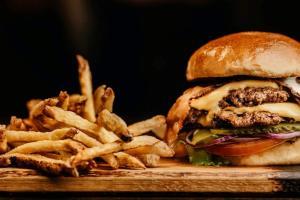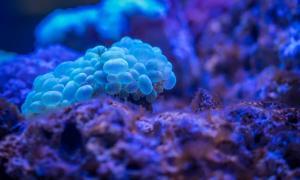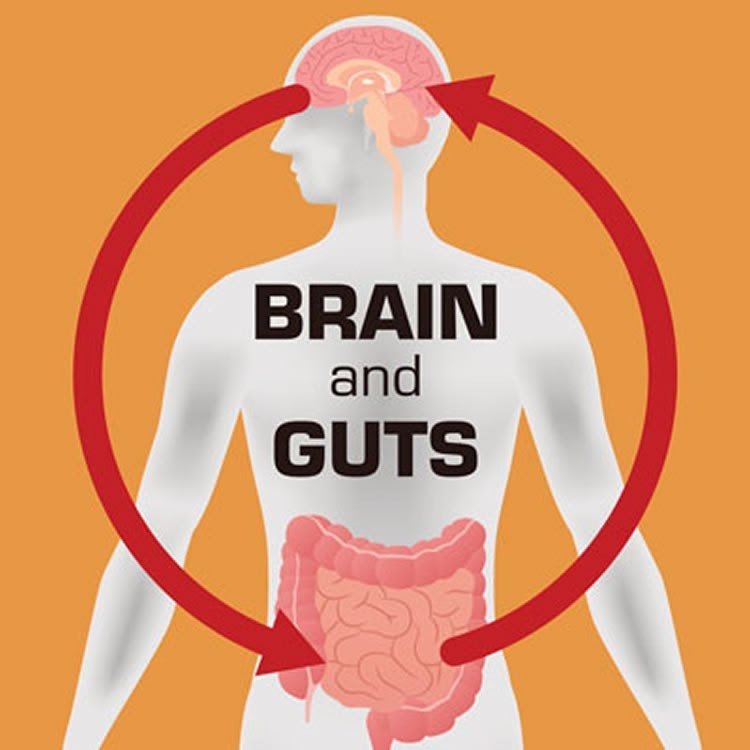Are you working in a London office, perhaps around Bond Street, Cavendish Square, Harley street, want to lose weight and become fit?
If you do, I know how you feel.
People often search for the best Harley Street Nutritionist to improve fitness, get rid of cravings, digestive issues and mood swings.
But, did you notice that despite eating supposedly well, you still put on weight, have low energy levels and get confused about what you should be eating?
One focus point that receives too little attention is the impact of our nutrition habits on the ratio between good / poor bacteria in your body.
The foods you eat affect the gut-brain connection.
And the imbalance in your macrobiome (good/poor bacteria) increases inflammation, anxiety, cravings and mood swings.
When people talk about bacteria, there is often thought about disease.
Whether you think about a throat infection or an abscess in your tooth, or perhaps even acne, these are all common problems that bacteria can cause in your body.
On the other hand, there are also good bacteria that live inside your body.
The good bacteria make up what is known as the gut microbiota1.
This is something first established during infancy.
From this point on, what you eat plays a big role in defining the bacteria that thrive in your gut.
Both good and bad bacteria can live in your digestive tract.
When there are too many bad bacteria, an infection can occur.
Increase the good bacteria, and you are faced with a lower risk of inflammatory disease and many other health benefits.
In this article, I will discuss the impact that poor eating habits can have on the gut microbiota.
I will also consider ways to overcome these adverse effects – equipping you with the knowledge to have a healthier gut flora.
We will look at how this all affects both your physiological and psychological health too.
Defining Poor Eating Habits
Let’s start by considering what poor eating habits are.
Research shows that unfortunately, poor eating habits account for quite a significant percentage of the population today.
One of the major concerns that are generally raised with poor eating habits is the risk of obesity.
According to Trust For London2, one of the largest charitable organisations in London, the concern regarding obesity starts during childhood.
In fact, the association reports a 23% obesity rate among six-year-olds in London.
Later in life, the problem persists during adulthood.
According to the Parliament of the United Kingdom3, an estimated 28.7% of the adult population in the country is currently considered obese.
In addition to this data, there is an additional 35.6% of adults in the country who are overweight.
The prevalence of overweight and obesity is largely contributed to by the poor eating habits of the general population.
Poor eating habits generally refers to making unhealthy decisions when preparing meals or having a snack.
A few examples of what poor eating habits would consist of include:
- Eating too many calories in a single day
- Eating too few calories in a single day
- Consuming too many foods that are high in fat – particularly saturated fats and other unhealthy types of fat
- Eating too many salty foods or adding too much salt to meals
- Eating too many foods that are high in sugar content
- Eating too many processed foods
- Following a diet with very few foods that offer fibre content

In the United Kingdom, there is serious concern regarding people following poor eating habits.
In fact, the NHS4 London recently discussed a study published in the peer-reviewed journal The Lancet that poor diet is actually killing more people than smoking.
The Lancet reports that an estimated 11 million people die each year around the world with a poor diet as a contributing factor.
The NHS also reports that people do not include enough:
- fruits,
- seeds,
- nuts, and
- whole grains in their diet.
Instead, people are following some addictive diets that are high in:
- salt,
- sugar and
- other factors that contribute to heart disease and other conditions.
Other foods part of a poor diet mentioned by the NHS include processed meat and other types of processed foods.
How These Eating Habits Affect Health
Unfortunately, poor diet equals obesity, heart disease, diabetes, and related conditions.
This is something that you will quickly learn when looking for a sports nutritionist near me.
This is a fact that most people are aware of.
What many do not realise is that a poor diet also affects the gut microbiome.
One journal entry explains that the microbiota is involved in the modulation of many diseases.
This includes a range of different conditions, in fact.
The research paper mentions both neurological diseases and metabolic disorders.
These are, however, not all there is to the impact of the gut microbiota on the well-being of the human body.
The microbiome of the human body consists of various microorganisms.
These include species classified into the following categories of microorganisms5:
- Bacteria
- Protozoa
- Fungi
- Viruses

Some of the microorganisms are beneficial.
These generally include bacteria part of the Bifidobacterium family, as well as those classified under the family of Lactobacillus.
In fact, they are even critical for the survival of your body.
Bacteria would certainly be the type of microorganisms with the most significant amount of research and evidence behind them.
Protein
One of the first studies to link protein consumption to changes in the gut microbiome was published in 19776.
This study compared the gut microbiota between the two groups.
One group followed a diet that was high in beef content.
The other group followed a meatless diet.
Bifidobacterium adolescentis was reduced in people who consumed large amounts of beef.
Bifidobacterium adolescents help to improve the biosynthesis of folate in the colon.
It also assists in protecting against inflammation.
On the other hand, there were more Clostridia and Bacteroides in these individuals.
Both of these are considered pathogenic bacteria linked to infection and disease.
The data was compared to the meatless group.
Adequate protein consumption may assist in increasing the Lactobacillus and Bifidobacterium species of bacteria in the gut7.
Both of these are beneficial families of bacteria.
This may also lead to a reduction in Clostridium perfringes, as well as Bacteroides fragilis.
These two are harmful bacterium species.
Low protein consumption may, on the other hand, have the opposite effect.
This is why the best Harley Street Nutritionist will often advise you to consume more high-quality protein which includes a complete range of essential amino acids.
However, the quality of the protein you are consuming is crucially important too.
Fats
The Western diet often includes high amounts of trans fats, as well as saturated fats.
These fats have been linked to an increase in LDL cholesterol.
LDL cholesterol is often called poor cholesterol and raises the risk of heart disease.
Total cholesterol also increases with the consumption of poor quality fats8.
Research shows that this leads to a higher risk of heart disease.
There are other risks involved with the consumption of these fats too.
High consumption of saturated fats and trans fats have been linked to an increased amount of Bacteroides in the gastrointestinal tract9.
These are considered pathogenic bacterium that may cause harm to the body.
There are also studies that show a high intake of saturated fats leads to a reduction in beneficial bacterium species in the gastrointestinal tract.
The focus was placed on Lactobacillus intestinalis, which is a beneficial bacterium.
Enterobacteriales, on the other hand, also increased – another type of pathogenic bacteria10.
A long term experienced nutritionist London based would generally advise you to eat high-quality fats, including polyunsaturated and monounsaturated fats – these will not have such adverse effects on the gut microbiome.
However, the same foods may have different effects in two different people since due to a number of factors we can react to foods in a different manner therefore, there would be other things you might need to take into account.
Carbohydrates
Carbohydrates also play a role in the microbiome.
Consumption of certain carbohydrates, such as those loaded in artificial sugars, may adversely affect probiotics that play a role in regulating certain systems in the body.
When it comes to carbohydrates, it is important to note how this macronutrient is divided into:
- indigestible and
- digestible carbohydrates.
Natural forms of sugars, like lactose and fructose, in the form of carbohydrates might have a beneficial effect on the gut microbiome.
Glucose, fructose, lactose, and sucrose seem to increase Bifidobacteria count in the gut11.
These also seem to reduce Bacteroides in the digestive tract.
Research shows that artificial sweeteners, however, causes a reduction in Bifidobacteria and rather an increase in Bacteroides.
Fibre often consists of prebiotic content.
This means that it helps to feed the probiotics that are crucial for human survival.
The problem is, most people do not eat enough fibre.
A lack of fibre may thus adversely affect the diversity of good bacteria species in the gastrointestinal tract12.
One of the best macrobioma experts in the world and Tufts University researcher I personally like, Michael Lustgarten has also previously reported on the benefits that fibre may have in terms of reducing all-cause mortality risks among the population.
Fibre is something that a plan by a nutritionist London would focus on too.
The Physiological And Psychological Impact Of An Unhealthy Gut Microbiome
When you fail to eat a balanced and healthy diet, your gut microbiota is affected in a negative way.
We have already established this – but why is the focus placed on the gut flora so important?
Several studies have looked at the psychological and physiological implications of the unhealthy gut microbiome.
This type of problem has been linked to the following conditions:
- Obesity
- Type 2 diabetes
- Inflammatory bowel disease
- Cardiovascular disease
- Cancer
Proof Michael Lustgarten has also confirmed that a burden in terms of the microbiota may have an adverse effect on ageing.
It is important to consider the role of the microbiota in the production of vitamins here.
Studies have found that probiotics play a role in the biosynthesis of certain vitamins, including B vitamins and vitamin K.
Furthermore, these bacteria species also assist in the absorption of vitamins that are contained in food.
Microbes also assist with the biosynthesis of the essential amino acids that are needed by the body.
Scientists have even found that the gut microbiota in a child may suggest if they could suffer from obesity in the future13.
This is an important finding, as restoring an improvement in the gut microbiome in these children could potentially be a way of countering the development of obesity.
In this study, scientists also found a strong correlation between the disruption in the child’s microbiome and an unhealthy diet.
Michael Lustgarten, PhD, was also recently involved in a study14 that provided evidence on how the gut microbiome continues to play a role in older age.
The study was conducted on a group of mice.
The study was published in the Journal of Experimental Gerontology.
Researchers found that the microbiota seems to play a role in muscle strength.
The focus of the study was on older age in subjects.
Studies are also focusing on identifying more pathways in which the gut microbiota may be involved with mental health.
This has a direct relation to the gut-brain axis that has previously been identified.
In one study15, researchers explain that the gut microbiota has a more profound effect on mental health than many might consider.
The study explains that a dysbiosis, which refers to an imbalance in the gut microbiota, in the gastrointestinal tract is linked to inflammation.
Together, both inflammation and dysbiosis may have an adverse effect on mental health.
In fact, the study particularly describes the increased risk of anxiety disorders observed in people with a gut dysbiosis.
This imbalance in gut bacteria could also potentially cause a person to experience an increased risk of developing depression.
The study also found that an increased intake of probiotics may assist in reducing signs associated with depression and anxiety disorders.
This further increases the evidence that the gut microbiota has a direct impact on the psychological well-being of a person.
With this in mind, the researchers behind the study now suggest the use of probiotics as a potential addition to the treatment strategies currently utilised among patients diagnosed with mental disorders.
At the very least, the use of some probiotics might be able to help reduce the severity of symptoms.
These benefits will be more profound among patients who seem to have a dysbiosis in their gastrointestinal tract.
The increase in probiotics may be advised by a nutritionist London based when you present with signs of dysbiosis.
Restoring Good Bacteria To The Digestive Tract
If you have a dysbiosis in your gut, then restoring a balance in your microbiota is critical.
Looking for a nutritionist near me is one way to stop overweight, obesity and poor eating habits.
This may be an effective way of regaining control in the weight management department or certain health conditions.
Consider both the physical and the mental side effects that come with a dysbiosis of gut bacteria.
The restoration of a healthier balance in gut bacteria starts with better eating habits.
You need to look at the poor eating choices you make at the moment and decide how you will be addressing them.

The avoidance of poor food choices – like meals overloaded in salt, sugar, trans fats, and saturated fats – is a good starting point.
At the same time, the introduction of high-fibre foods that are also rich in nutrients needs to be a critical factor.
The best Harley Street Nutritionist would be one way to help you go from poor eating habits to a diet that benefits your microbiota.
There are several plant-based sources of fibre and protein that will not expose your body to saturated fats.
This makes for a great way to improve the healthy bacterium in your gut, while also possibly reducing the presence of pathogenic microorganisms.
Conclusion
The gut is home to trillions of microbial species.
Some of these, like Bifidobacterium and Lactobacillus species, are beneficial microorganisms.
These are often referred to as probiotics.
Poor eating habits have been found to have a negative effect on the health of the microbiota in the gastrointestinal tract.
When there is an imbalance in the gut flora, it leads to certain complications.
You may experience side effects in both your physical and mental health, including a risk of depression and a higher likeliness of heart disease.
In this article, I looked at how exactly poor eating habits affect your gut microbiome.
Each person is different from and reacts differently to different foods.
This is a very complex subject however, there are a lot of things you could do to restore optimal health in terms of the beneficial microorganisms that thrive in your gut.
Author Bio
Jazz Alessi is considered one of the best Harley Street Nutritionist.
Jazz is also an elite personal trainer in London, second-generation Pilates trainer and very experienced in working one-on-one with corporate clients.

He designs an evidence-based customised nutrition programme for every client, ensuring their unique needs are catered for while they are aiming to reach their individual goals.
Jazz does not only provide personalised training programmes but is also an expert in providing clients with advanced nutritional plans.
These plans can help you lose weight, mental focus, improve your physical performance and recovery after exercise or a disease, address problems like poor eating habits, paving the way toward a healthier microbiota.
Claim now your FREE CONSULTATION with Jazz
References
1 E. Thursby, N. Juge. Introduction to the human gut microbiota. 1 Jun 2017. Biochemical Journal. https://www.ncbi.nlm.nih.gov/pmc/articles/PMC5433529/
2 Child obesity. Trust for London. https://www.trustforlondon.org.uk/data/child-obesity/
3 Obesity Statistics. 6 Aug 2019. Parliament UK. https://researchbriefings.parliament.uk/ResearchBriefing/Summary/SN03336
4 Poor diet now killing more than smoking. 4 Apr 2019. NHS. https://www.nhs.uk/news/food-and-diet/poor-diet-now-killing-more-smoking/
5 Metagenomic analysis of the human distal gut microbiome. 2 Jun 2006. Journal of Science. https://www.ncbi.nlm.nih.gov/pubmed/16741115/
6 D.J. Hentges, B.R. Maier, G.C. Burton, M.A. Flynn, R.K. Tsutakawa. Effect of a high-beef diet on the faecal bacterial flora of humans. Feb 1977. Journal of Cancer Research. https://www.ncbi.nlm.nih.gov/pubmed/832279/
7 D. Swiatecka, A. Narbad, K.P. Ridgway, H. Kostyra. The study on the impact of glycated pea proteins on human intestinal bacteria. 31 Jan 2011. International Journal of Food Microbiology. https://www.ncbi.nlm.nih.gov/pubmed/21276631/
8 D.K. Spady, L.A. Woollett, J.M. Dietschy. Regulation of plasma LDL-cholesterol levels by dietary cholesterol and fatty acids. 1993. Annual Review of Nutrition. https://www.ncbi.nlm.nih.gov/pubmed/8369151/
9 F. Fava, R. Gitau, B.A. Griffin, G.R. Gibson, K.M. Tuohy, J.A. Lovegrove. The type and quantity of dietary fat and carbohydrate alter faecal microbiome an short-chain fatty acid excretion in a metabolic syndrome ‘at-risk’ population. Feb 2013. International Journal of Obesity. https://www.ncbi.nlm.nih.gov/pubmed/22410962/
10 V. Lecomte, N.O. Kaakoush, C.A. Maloney, M. Raipuria, K.D. Huinao, H.M. Mitchell, M.J. Morris. Changes in gut microbiota in rats fed a high-fat diet correlate with obesity-associated metabolic parameters. 18 May 2015. PLoS ONE. https://www.ncbi.nlm.nih.gov/pubmed/25992554/
11 Nutritional Analysis of Date Fruits. Aug 2015. American Journal of Life Sciences. http://www.sciencepublishinggroup.com/journal/paperinfo.aspx?journalid=118&doi=10.11648/j.ajls.20150304.14
12 EP Halmos, C.T. Christophersen, A.R. Bird, S.J. Shepherd, P.R. Gibson, J.G. Muir. Diets that differ in their FODMAP content alter the colonic luminal microenvironment. Jan 2015. Journal of the Gut. https://www.ncbi.nlm.nih.gov/pubmed/25016597/
13 Pre-obese children’s dysbiotic gut microbiome and unhealthy diets may predict the development of obesity. 2018. Communications Biology. https://www.ncbi.nlm.nih.gov/pmc/articles/PMC6286349/
14 R.A. Fielding, A.R. Reeves, R. Jasuja, C. Liu, B.B. Barrett, M.S. Lustgarten. Muscle strength is increased in mice that are colonised with microbiota from high-functioning older adults. Nov 2019. Experimental Gerontology. https://www.sciencedirect.com/science/article/abs/pii/S0531556519304772?via%3Dihub
15 M. Clapp, N. Aurora, L. Herrera, M. Bhatia, E. Wilen, S. Wakefield. Gut microbiota’s effect on mental health: The gut-brain axis. 15 Sep 2017. Clinics and Practice Journal. https://www.ncbi.nlm.nih.gov/pmc/articles/PMC5641835/



